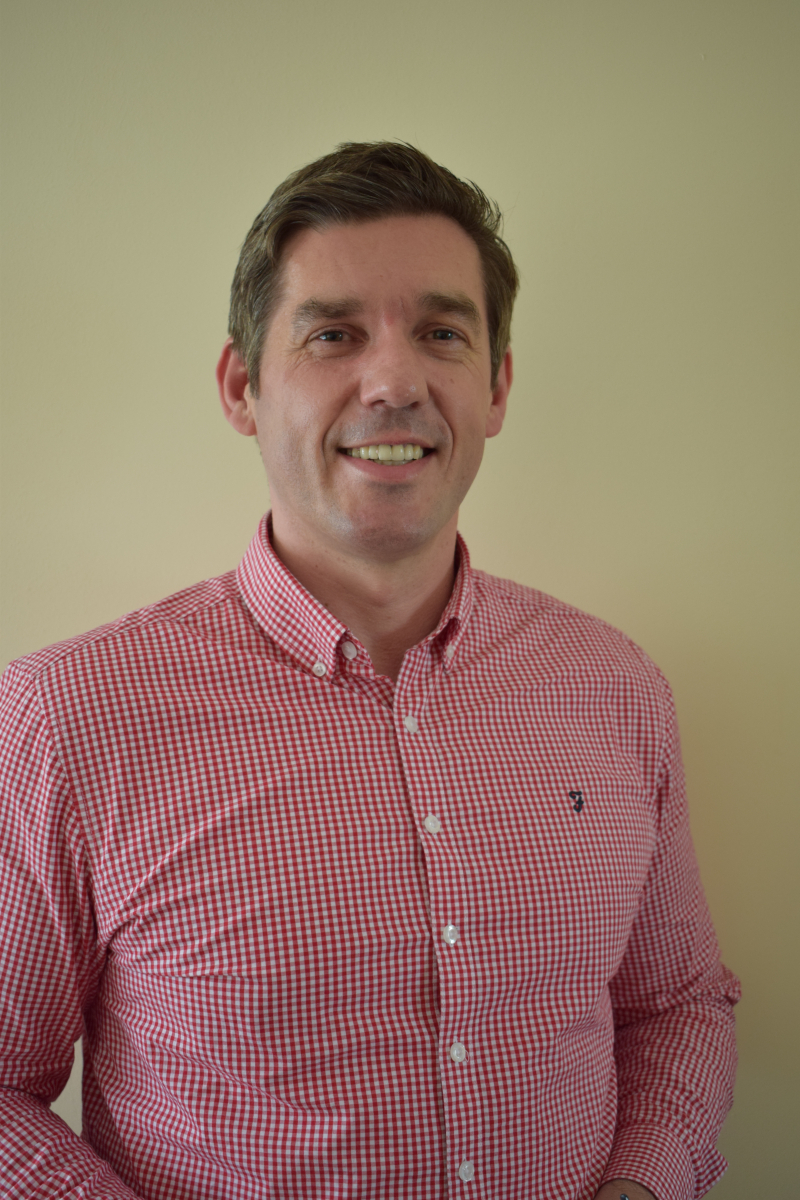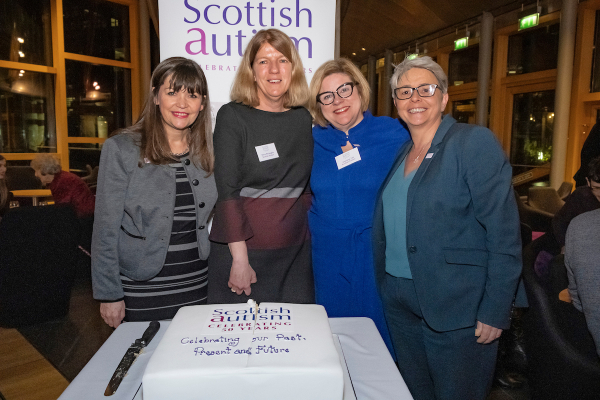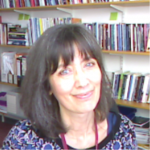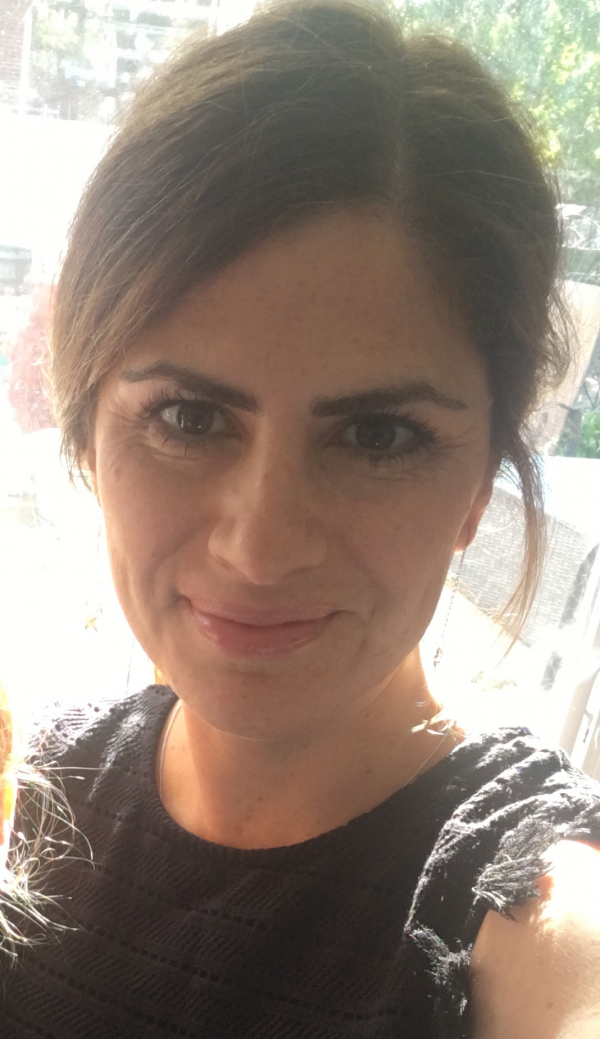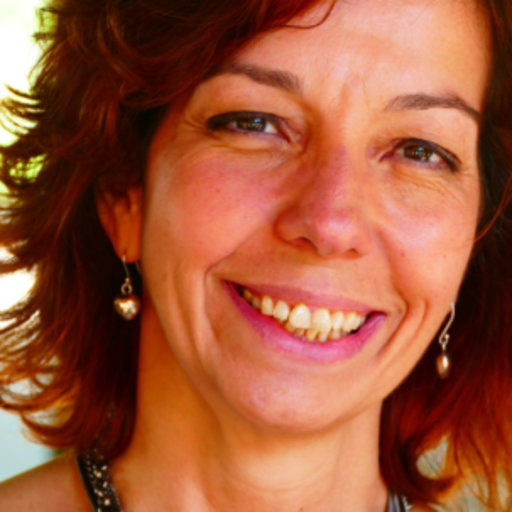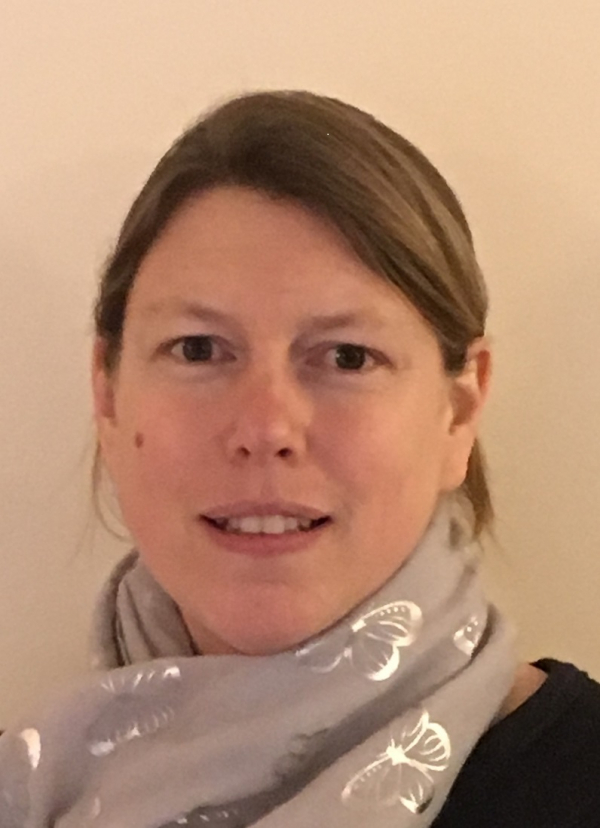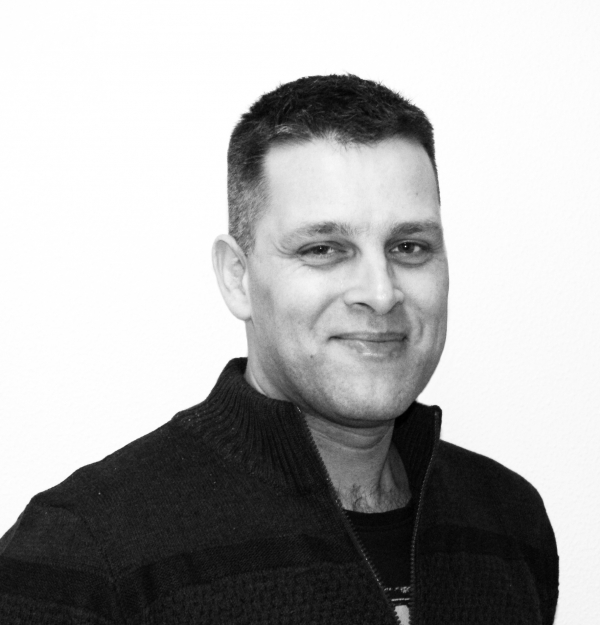Share Magazine Winter 2018
Letter from the Editor
Alastair Clarkson, Researcher in Residence, Scottish Autism
In her opening address at our first international research conference ‘Innovation in Autism Practice - The Future is Calling’, Scottish Autism’s Deputy Chief Executive Charlene Tait described the evolution of narratives around autism through the depiction of Scottish Autism pin badges over the years. Charlene spoke with a humility that asked us not to judge the attitudes of the past but recognise our own individual responsibility in the evolution of understanding around the autistic community.
It is by moving from a ‘deficit view’ of autism that we find the space to develop a humanistic, ‘capacity view’ of autistic individuals. In this way, Charlene outlined how a Scottish Autism ‘capacity view’ of autistic people is able to place an alternative, holistic focus on autistic strengths, happiness and wellbeing. Charlene reminded us that whilst the need to recognise the needs and challenges that autistic people face is clearly important, in order to be truly ethical in our approach we must also to recognise the limits of our own understanding when we support others.
One of the main objectives of our first conference was to support autistic researchers, advocates and researchers and practitioners who choose to work outside a ‘deficit’ model of autism to share their valuable knowledge and promote innovation within practice. Within this special 50th Anniversary edition of Share we are proud to offer a snapshot of the many inspiring conference presentations that took place.
Jackie Ravet describes the process by which we are continually ‘encultured’ into particular values, beliefs and ways of being within the workplace, highlighting the need to ‘surface’ underlying influences in order to change our attitudes and behaviour when we work with the autistic community.
One of the characteristic experience of minority groups is that the voice of marginalised individuals remains one which is frequently not heard, valued or believed (1) a reality which can mean many supported people are not consulted about the services they receive. Paddy Carstairs describes the work of the National Involvement Network (NIN) – a group of supported persons who developed the Charter for Involvement to ensure that fundamental rights to choice and control within services are respected and honoured.
By placing an equal value on autistic voice, Hanna Kovshoff and colleagues identify an important ethical research principle which appears frequently overlooked - that the voice of autistic individuals should be recognised as a unique and equally valuable source of information. Emma Rice describes an innovative program of research engagement she developed in order to remove barriers to authentic consultation. Emma found that by offering choice within engagement her participants reported a sense of freedom from control; ease in sharing their thoughts; increased motivation and enjoyment and a decreased sense of failure.
To truly ‘listen’ in an active way it is clear we must be prepared to makes changes based on what we hear. Esther Gooch describes simple yet highly effective strategies to support the wellbeing of autistic pupils by altering the educational ‘space’ around the autistic pupil through environmental changes or adaptions to the educational culture or curriculum.
Michael Kvistgaard asks us to consider an element frequently overlooked within many support settings and areas of literature - that of emotional wellbeing. Michael’s insights provide practical ways to increase positive emotions through the undertaking of new activities and mindsets.
The second part of our conference title - ‘The Future is Calling’ refers to a time when we are all prepared to stand clear of a ‘deficit view’ of autism to see what the autistic community has been waiting to teach the rest of society - that the autistic experience has always been an integral part of the rich and charismatic tapestry of human life and is one from which we can all learn more deeply.
Listening to the wisdom and experience of the autistic advocate and artist Jon Adams within his inspiring keynote address, it was clear just how much more work is required in order that the autistic communityare welcomed where they have always belonged- at the centre of autism research and practice. But whilst intentions like these are easy to articulate, in a complex world full of competing interests and views how can we ensure we all make concrete progress towards this goal?
Describing her research examining the school experience of autistic young women, Ruth Moyse tells us about the school experiences of ‘Rosie’ whose voice was seldom heard or acknowledged throughout periods of extended trauma when the education system failed to meet her needs. As a result of being valued and consulted on her own terms ‘Rosie’ offers a solution for all those who work on behalf of the autistic community- a solution which should be actively sought across all research, educational and support settings in order that we may establish a more positive and secure future for the autistic community:
‘Listen.
Listen and believe me.’
1. Gómez, A., Puigvert, L., and Flecha, R. (2011). Critical communicative methodology: Informing real social transformation through research. Qual. Inq. 17, 235–245.
ISSN 2515-2335 (Online)

